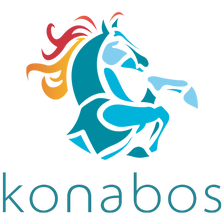A New Initiative To Monitor The Health of Cloud-based Apps and Services
Mike Edwards - Technical Director
24 Oct 2022
This week I have launched a new initiative called the Status, Incident and Maintenance (SIM) Standard; this is an ambitious plan to try to get all cloud service providers to standardise how they share the health status of the services they provide.
I know, I know this doesn’t sound exciting or sexy, but give me a few minutes to convince you of why you should care.
We have all watched the industry move from on-premises systems to cloud-based solutions. Today a modern piece of software is a collection of different services provided by numerous different providers spread across the web.
Companies are also building their own services to expose internal data publicly through APIs and microservices, enabling their own apps and partner organisations to integrate with them.
This shift has allowed us to reimagine how we build software. We no longer need to worry about maintaining servers, installing updates, and creating redundancies. Instead, we can focus on picking the services that allow us to rapidly build solutions, solve business problems and deliver value.
However, in our rush to the cloud, including (SaaS, PaaS and IaaS), we have forgotten about one fundamental thing that we all need to care about...what is the health of our technology ecosystem?
In the past we would monitor hardware, network connections, and hard drive space. If something looked suspicious a warning would be sounded and someone would jump on it to mitigate any potential for outages or system crashes.
We may no longer need to monitor hardware but instead we have a collection of services that we need to check. Think about a typical ecommerce solution, it might include a PIM, Payment Provider, DAM, CMS, ERP, Ecom, Customer Engagement, CMS, Microservices, and integration APIs. This list does not even cover everything!
So how are you monitoring these systems? How are you detecting if one of these solutions goes wrong and the impact it will have on the other systems in your ecosystem?
Unfortunately, there is no standardisation across the industry on how to report the health of cloud-based services. Some providers, like Azure, provide a dashboard web page and RSS feed for statuses and others don’t provide anything (as if assuming nothing can ever go wrong).
There is a lack of consistency and tooling which makes it difficult for customers to monitor their solutions, assess platform risks, and identify the cause of problems.
The SIM Standard wants to tackle this by introducing a technical standard that details how service providers should expose service health information in machine readable format. This standard covers the following:
- Status – the health of the services that they offer. Is everything running ok, or are services impaired?
- Incidents – what on-going or historical incidents has the service suffered. Regular updates on tackling the incidents can also be provided.
- Maintenance – when the service provider will be rolling out updates to their systems and which services are affected.
Once exposed publicly, it will allow development teams and third-party providers to bring this information, from multiple different providers, together and present it on a single dashboard view. From a mishmash of random web pages, RSS feeds, and emails we move to a single dashboard view of the systems our applications depend on. A single source of truth about the technology we depend on.
Advantages for Service Providers:
- No need to create a custom status page, just implement the standard and let others create dashboards from it.
- Add more peace of mind to your customers.
- It shows that they take service availability seriously.
Advantages for Customers:
- Improved visibility of health of their technology ecosystem.
- Reduces the time to identify the cause of an issue.
- The ability to plan for the maintenance of critical dependencies.
If you are convinced about the need to create a better way to communicate the health of the internet, then head over to the Sim Standard to learn more and show your support.

Mike Edwards
With 18 years of IT development experience, Mike has worked across government, not for profit, and commercial sectors. He has delivered large-scale multinational websites, desktop and mobile applications, and mission-critical health apps. He works closely with the client and delivery teams to ensure that projects deliver business benefits and not just a technical solution.
Mike is a nine-time Sitecore MVP and is the founder of the very popular Glass.Mapper.Sc ORM, which has over 1 million downloads.
Outside of work, Mike can be found exploring the British countryside, riding his motorbike, and learning the piano.



Share on social media